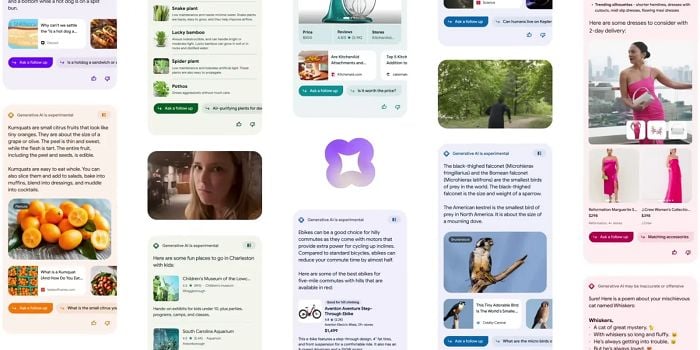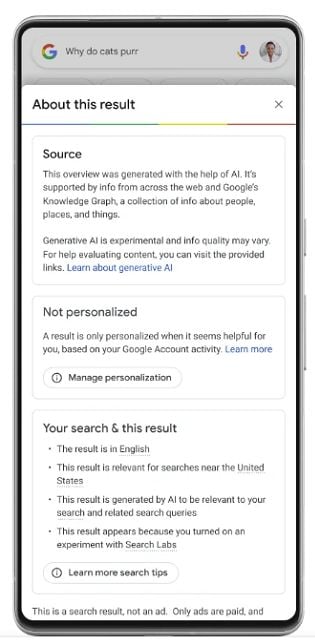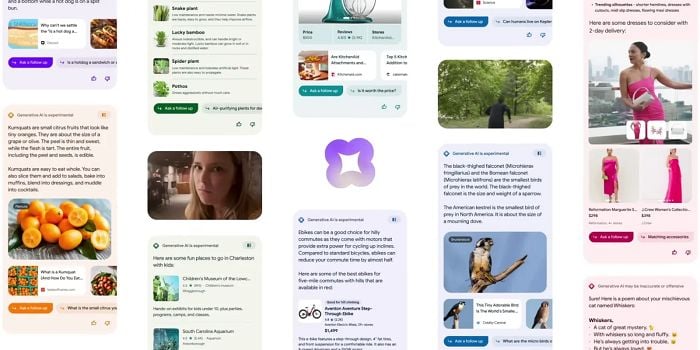After testing out its generative AI Search Labs system (SGE) with selected users over the last few months, Google is now expanding access to more people, with a specific focus on younger audiences that have shown higher interest in this new process.

As you can see in these examples, Google’s Search Labs generative AI search process has been added to the Google Search results page for those in the initial test pool, which enables searchers to augment their regular keyword search with more specific, custom parameters, essentially integrating ChatGPT-like conversational qualifiers into the Google Search experience.
Google says that the general response to Search Labs has been positive, though younger users, in particular, have been more actively engaging the system.
“We’ve seen that younger users – those aged 18-24 who currently have access to SGE – are finding this experience especially useful. They’ve given us particularly positive feedback about how these capabilities make it possible to search for information in a more conversational, natural way, and ask follow-up questions.”
Which makes sense. Younger users are more open to new processes and options, and are therefore logically going to be more open to change. But it also bodes well for the future of generative AI, with younger user cohorts, especially those just coming online, learning all new ways of engaging with the web, which will lead to more significant usage shifts in future.
As a result, Google says that more teenage users will now get access to Search Labs.
“Starting this week, teens ages 13-17 in the U.S. signed into a Google Account will be able to sign up for Search Labs to access select Labs experiences through the Google app or Chrome desktop. This includes access to SGE, which can help people find information faster and more naturally and explore topics of interest, as well as SGE while browsing web pages”
Google’s also keeping safety in mind, with a new AI Literacy Guide, which addresses key questions about how generative AI works, including its capabilities and its limitations.
Google’s also rolling out new “About this result” panels within generative AI search results, which will provide additional context as to how the system works, and how it’s come to its conclusions.

Google also notes that it’s making improvements to its Search Labs process, to eliminate false responses, including improved training process for its Search Labs models.
It’s interesting to note the usage trends for AI search, which point to it becoming a more significant discovery element moving forward. And while the systems still have a way to go in addressing false information (especially as more AI-generated content floods the web), it does seem like conversational search will become more of a factor over time, which will provide new SEO considerations, new ad options, and more.
You can learn more about Google’s latest Search Labs experiments here.



